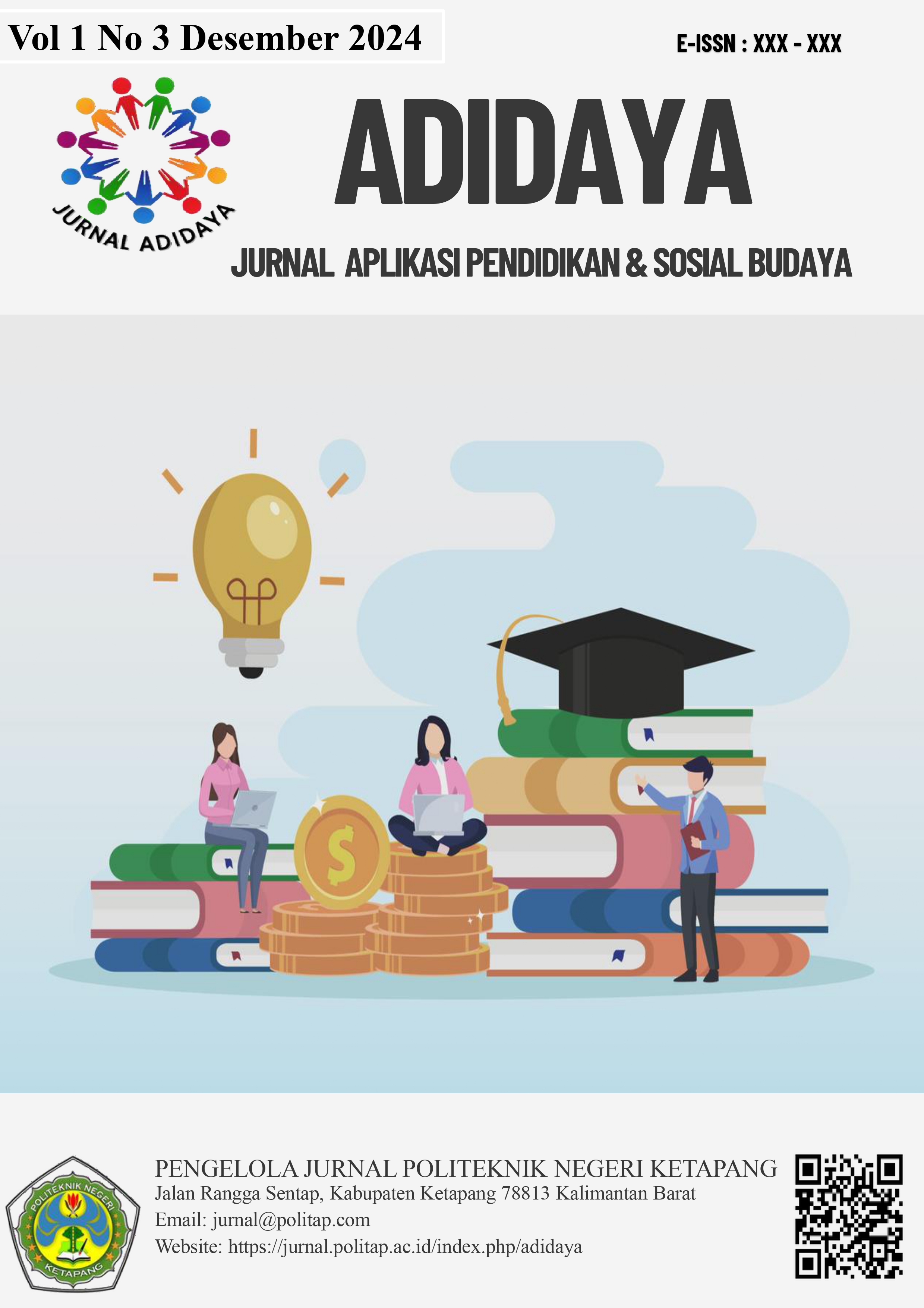ANALYSIS OF DIFFICULTIES IN MASTERING ENGLISH SPEAKING SKILLS AT SMPI DARUDDA'WAH PUNGGUR
 https://doi.org/10.58466/adidaya.v1i3.1627
https://doi.org/10.58466/adidaya.v1i3.1627
Keywords:
Difficulties, Speaking Skills, Qualitative researchAbstract
This research aims to identify the difficulties of eighth-grade students at SMPI Darudda'wah Punggur in mastering English speaking skills and the factors contributing to these challenges. The study uses Penny Ur's theory to identify the specific difficulties students in speaking, including inhibition, lack of content to discuss, uneven participation, and overreliance on their mother tongue. To uncover the underlying causes, the study employs Jaya's theory, which emphasizes internal and external factors. The research follows a qualitative approach with a case study design, involving all eighth-grade students at SMPI Darudda'wah Punggur as subjects. Data collection was conducted through questionnaires and interviews, and the data was analyzed using Miles and Huberman's framework, which includes data reduction, data display, and conclusion. Source triangulation techniques were used to ensure the validity of the data. The findings reveal that the main difficulties faced by the students include inhibition (feeling confused, afraid of making mistakes, fear of ridicule, and challenges with vocabulary and grammar), not knowing what to say due to limited vocabulary, uneven participation stemming from a lack of interest, and the frequent use of their mother tongue. Internal factors such as low motivation, weak cognitive abilities, and low self-confidence, along with external factors like limited social support, less interactive teaching methods, and insufficient opportunities to practice English, contribute to these difficulties. These factors collectively hinder students from mastering their English-speaking skills.
References
Afandi, S. W. (2020). Investigating English Speaking Problems: Implications for Speaking Curriculum Development in Indonesia. European Journal of Educational Research, 9(3), 967 - 977.
Baker, J. a. (2003). Essential Speaking Skills: A English Language Teachers. London: Continum.
Bogdan, R. a. (1975). Introduction to Qualitative Research Methods: A Phenomenological Approach to the Social Sciences. New York: Wiley.
Brown, H. (2000). Teaching by Principles: An Interactive Approach to Language Pedagogy(2nd ed). Longman.
Brown, H. (2001). Language Assessment Principles and Classroom Practice. London: Longman.
Brown, H. (2003). Language Assesment Principles and Classroom Practices. San Francisco: Longman.
Celce Murcia, M. L. (1999). The Grammar Book:An ESL/EFL Teachers' Cousre. Boston: MA: Heinle and Heinle.
Chens‟. (2009). A pilot study od some ROCMA Cadets’ difficulties in English speaking. Http://docplayer .net>21472786-A-pilot study od some rocmacadest‟ difficulties in English speaking.
Creswell, J. (2014). Research Design: Qualitative,Quantitative,and Mixed Methods Approaches. Thousand Oaks,CA: Sage Publications.
Dörnyei, Z. (2001). Teaching and Researching Motivation. Longman.
Gay, L. A. (2005). Educational Research: Competencies for Analysis and Applications(9th ed.). Upper Saddle River, NJ: Pearson Education.








 This journal has been indexed by:
This journal has been indexed by:

